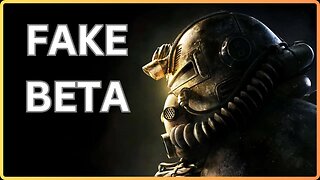Premium Only Content

'The Shape of Things to Come' (1933) by H G Wells
The Shape of Things to Come (1933) by H.G. Wells is a speculative, futuristic novel presented as a fictional history. The book chronicles humanity's trajectory from the 20th century into the 22nd, portraying a dystopian world that ultimately evolves into a utopian society. It reflects Wells's vision of technological progress and its social consequences, with a blend of optimism and caution.
The novel is structured as if it were a historical account based on dreams experienced by a man named Dr. Philip Raven. Raven's visions encompass key world events over two centuries. Key elements include:
1. Collapse of Civilization:
The novel begins in the aftermath of World War I, exploring the economic, political, and social chaos that ensues globally.
A devastating second world war and a subsequent global pandemic exacerbate humanity's decline. The resulting collapse of traditional nations leads to widespread anarchy and suffering.
2. Rise of a Technocratic Elite:
Amid the chaos, a new ruling class of scientists and engineers, referred to as "The Air Dictatorship," emerges.
Using advanced technology, this elite group gradually stabilizes the world, suppressing nationalism, war, and outdated religious institutions.
3. Transformation into a World State:
The Air Dictatorship evolves into a World State, prioritizing reason, science, and planned progress.
The rulers implement sweeping reforms, including the abolition of private property, a focus on education, and the establishment of a universal language.
4. Challenges and Ethical Questions:
The novel delves into the moral dilemmas of wielding absolute power, exploring whether authoritarianism can be justified for the greater good.
Resistance from traditionalists and remnants of the old order poses challenges to the World State's vision.
5. Utopian Future:
Over time, humanity transitions into an egalitarian utopia characterized by harmony, technological innovation, and intellectual enlightenment.
The novel concludes with a hopeful vision of a unified, peaceful, and progressive world.
Wells uses the narrative to critique the failings of his contemporary society, particularly its reliance on nationalism, militarism, and irrationality. The book also reflects his belief in the transformative power of science and rational planning, though it raises complex questions about the ethics of centralized control.
-
 1:04:03
1:04:03
TheCrucible
3 hours agoThe Extravaganza! EP: 64 (11/24/25)
75.9K9 -
 1:19:32
1:19:32
Kim Iversen
2 hours agoIsrael Running The Dept Of Homeland Security Social?!?
16.2K50 -
 LIVE
LIVE
Akademiks
1 hour agoSheck Wes exposes Fake Industry. Future Not supportin his mans? D4VD had help w disposing his ex?
965 watching -
 DVR
DVR
The Trish Regan Show
2 hours agoJUST IN: ABC HIRES Marjorie Taylor Greene for ‘The View’?! Hosts FREAKING OUT Over Being REPLACED!
14.1K5 -
 22:02
22:02
We Got Receipts
6 hours agoIt just got WORSE for Democrats…
6.58K9 -
 4:15
4:15
Captain Peach
10 days ago $0.53 earned5 Ways Games Trick You Into Buying
6.72K2 -
 1:00:30
1:00:30
Based Campwith Simone and Malcolm
4 days agoYou Think You Hate The Media ... You Don't Hate Them Enough
6.79K1 -
 1:03:11
1:03:11
The Amber May Show
5 hours agoAmerica’s Spiritual Shake-Up: From Pews to Paganism?
2.34K2 -
 1:16:27
1:16:27
Redacted News
3 hours agoYou Won't BELIEVE what is happening in America right now... It's SHOCKING
113K110 -
 1:38:07
1:38:07
vivafrei
4 hours agoLive with Ivan Raiklin! Jan. 6 Pipe Bomber~! Comey & Letitia James Charges Dropped! AND MORE!
78.9K51